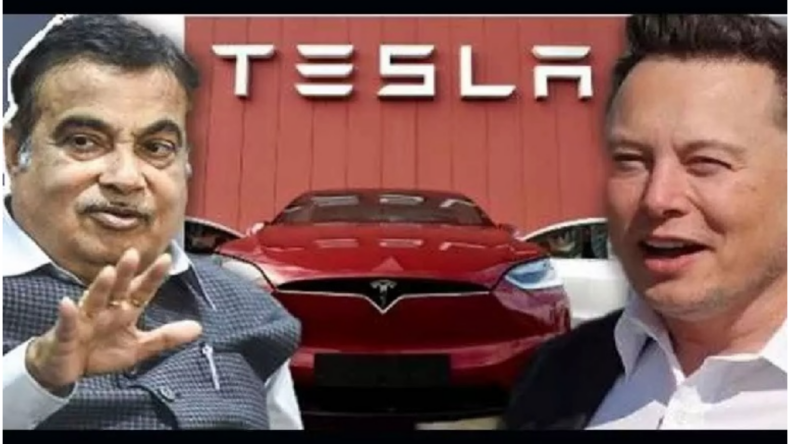Union Minister Nitin Gadkari on Tuesday said if the US-based Tesla is ready to manufacture its electric vehicles in India but must not import its cars or any component from China.
In an interactive session at the Raisina Dialogue, Gadkari further said India is a large market and there is a huge potential for all electric vehicles.
Tesla has been lobbing officials in New Delhi for nearly a year to cut tariffs as they’re among the highest in the world.
Last year, the minister of heavy industries asked Tesla to first start production in India before any tax concessions can be considered.
Tesla is very desperate to sell its vehicles in India
Why Tesla and Indian Govt. aren’t on the same page?
Tesla’s plans to enter Indian market since 2019 are nothing but a stalemate as Tesla has not revealed a firm plan to invest in India.
A plan in the form of commitment would achieve equilibrium with PM Narendra Modi’s “Make in India” campaign.
This will not only boost local manufacturing and create jobs but also will give an extra edge to India in its ambitious energy transition.
India levies a 60% import tax on vehicles priced at $40,000 (₹30,64,760) or less and 100% on those priced above $40,000.
Tesla’s cars start at $44,690 (₹34,24,103) and in India with 100% import taxes we might end up paying 30-40 lakhs more.
Govt has recently reduced GST on EV from 12% to 5% and on chargers also from 18% to 5%, which is a very positive in this build up.

What Tesla would need?
In a letter to ministry of road and highway, the us based firm said that the effective tariff of 110% on vehicles with customs value above $40,000 is prohibitive to zero/no emission vehicles.
It also included a formal request to the government to standardize the tariff on electric cars to 40% irrespective of the customs value and withdraw the social welfare surcharge of 10% on electric cars.
Tesla is ready to make significant direct investments in Sales, Services and Charging infrastructure as it aims to significantly increase procurement from India for its global operations.
Tesla clearly stated their needs will not cause any harm to the Indian automotive market.
As only 1-2% of cars sold in India have ex-factory/customs valued above $40,000.
However, govt. has refused to agree and suggested Tesla to start manufacturing in India before any tax concessions are considered.
Conclusion
Indian roads are still dominated by cheap, fossil powered vehicles manufactured by the likes of Hyundai, Suzuki (Formerly Maruti Suzuki)
Sales accounting for less than 1% has underscored a huge opportunity for electric vehicle manufacturers in India.
Read Also: Ola recalls electric scooters a failure?
Published By: Aman Gupta
Edited By: Vanshika Sahu












